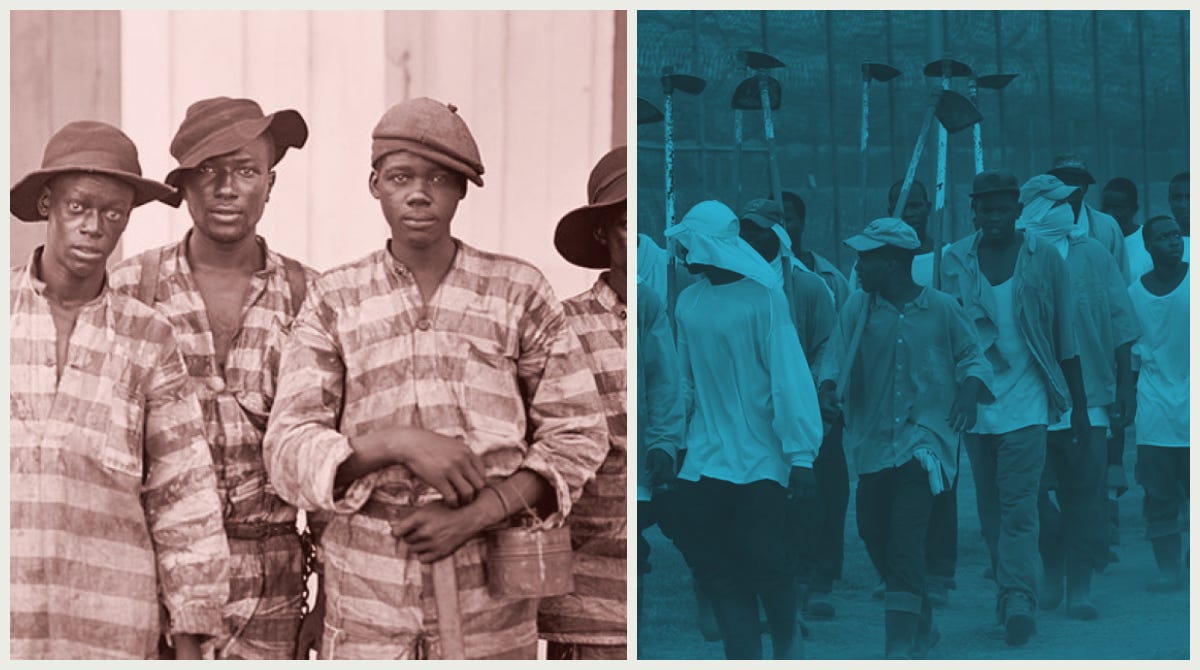Today we interview Alec Karakatsanis from the Civil Rights Corps to talk about his most recent book “Usual Cruelty.”
Alec talks to us about the inhuman violations and degradations in the American prison system that occurs because of a blend of capitalism and a harsh “tough on crime” culture.
The violations that Alec details are extremely egregious. We usually don’t ask this often, but please share this episode with as many friends and family as possible. We need them to understand the corruption of the justice system on all levels.
Show notes:
0:00-5:30
A woman is in jail for many traffic tickets, but she is not unique. Alec witnessed a court bring in “67 people chained together.” He noticed:
All 67 were black
Not a single one was charged with a crime
All of them were there because they owed money to the city with old tickets.
Many were speaking about poverty, but the judge screamed at them and threw them in jail.
5:30-10:30
The City of Montgomery, Alabama and its contractor, for-profit probation company Judicial Correction Services, “pocket[ed] millions” while knowingly “perpetuating a cycle of debt and unlawful imprisonment.” That’s how federal judge Royce Lamberth described the system under which hundreds of low-income municipal court defendants were jailed for being too poor to pay traffic tickets and other fines. On July 7, 2020 in Carter v. Judicial Correction Services, the U.S. District Court for the Middle District of Alabama ruled that there is enough evidence for our lawsuit against the City, JCS, and a City-hired contract criminal defense attorney who participated in the scheme to go forward to trial, paving the way for the victims to finally get justice.
Public Justice’s Debtors’ Prison Project and the Evans Law Firm of Birmingham represent Aldaress Carter, who filed suit several years ago on behalf of all similarly-situated JCS probationers in Montgomery. Because he couldn’t afford to pay fines from traffic tickets up front in one lump sum, Mr. Carter was sentenced to JCS-supervised probation. JCS’s system was “offender-funded,” meaning the company didn’t charge the City a penny for its debt-collection services. Instead, Mr. Carter and other probationers were ordered to pay $40 every month in probation fees on top of their underlying fines. It was a lucrative business model: JCS took in over $15 million in fees in Montgomery alone—and almost $60 million statewide before it was forced out of Alabama.
10:30-14:58
Anti-drug laws that punish small offenders
14:58-18:15
“If you invade a 7/11 you will be prosecuted to the full extent of the law. If you invade a foreign country, you are President”
The more power someone has, the less conduct they do is considered a crime.
Examples: Too big to fail
“Looking at the data, the robo-signing and foreclosures caused millions of deaths.”
The justice department refused to try any of these bankers despite the overwhelming evidence.
Torture
18:15-20:15
Why don’t these debtor’s prisoners don’t have an attorney?
All over the country people are being jailed for being a debtor.
We have a legal grey area about whether you are imprisoned for debt.
20:57-26:30
“There is no law that forces the local prosecutor to go after these debts.”
No probation system that forces these people for debts.
They do it because it is systemic.
29:30-32:10
“The Land of the Free has the most prisoners. Out of every four people in jail (in the world), one American.”
The prison-supply chain and the millions of people involved in upholding the injustice.
Private companies are profiting at every stage, but we are simply unaware of it.
34:15-35:55
Inequality on the streets:
“Dice-wagering” and other forms of illegal gambling that are disproportionately punished
Wall Street and “pump and dump”
35:55-38:10
Grotesque amount of abuse in prisons:
People in Alabama are shackled for days in extremely disgusting conditions.
However, they are retaliated against and therefore afraid to come forward.
38:10-41:30
“Diversion programs”
Sends money to for-profit companies.
They incentivize churning more people through an unjust system
Please follow Alec on twitter.













The Punishment Bureaucracy with Alec Karakatsanis